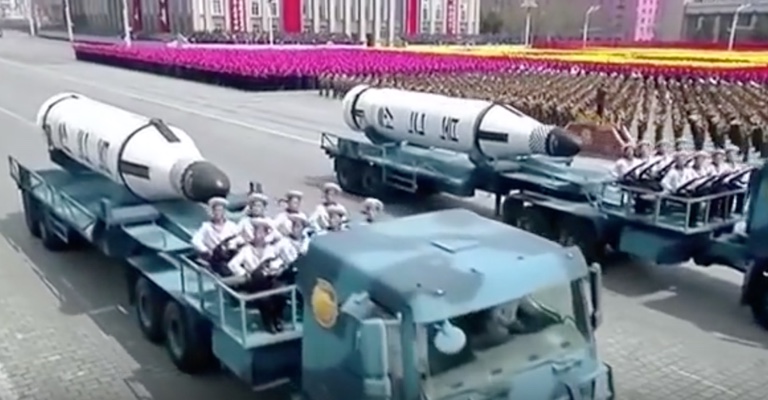In His War of Rhetoric with North Korea Trump So Far Hasn’t invoked “The Lessons of Munich”

The recent tensions between the United States and North Korea have featured heated rhetoric between the two nations’ leaders, Donald Trump and Kim Jong-Un. Trump, no stranger to bombastic pronouncements, has threatened to “totally destroy” the North Korean regime, while Kim referred to the US president as a dotard, a phrase which compelled many Americans to consult a dictionary. Trump’s heated language has also avoided a staple of previous foreign policy crisis rhetoric: the “lessons” of Munich.
Although Trump has presided over a chaotic and dysfunctional administration, the omission of the Munich analogy is striking given its prominent place in the lexicon of US policymakers after World War II. Ever since Western European statesmen settled on a policy of expediency to avoid war with Adolf Hitler, US politicians have used this event to warn the public and other lawmakers about the threat of appeasement. Essentially, the premise underling this analogy is giving into an aggressor’s demands only emboldens them. The generation of WWII policymakers viewed these lessons as sacrosanct: stand firm and be prepared to “get tough.” It never mattered if the analogy was apt—it never was—it served its purpose of justifying US interventionism abroad.
Whenever a foreign policy crisis erupted US officials trotted out the Munich analogy. It did not matter whether the problem was in Europe, Asia, or the Middle East. President Harry Truman was the first president to fall prey, justifying his “police action” during the Korean War. Vietnam? Check. As president LBJ confided in his diary, if he “let Ho Chi Minh run wild through the streets of Saigon, then I’d be doing exactly what Chamberlain did during World War II. I’d be giving a fat reward to aggression.” Saddam Hussein? President George HW Bush reminded his audience in August 1990, “Half a century ago, the world had a chance to stop a ruthless aggressor and missed it. I pledge to you: We will not make that mistake again.” The crisis in the Balkans under President Bill Clinton? Clinton officials were not immune either. Madeline Albright, Clinton’s Secretary of State, argued that unless the nation adopted a harsher policy toward Slobodan Milosevic it would lead to “another Munich.”
Should anyone compare North Korea to Nazi Germany it would be as flawed as the previous examples. Even North Korea’s leader, who is often portrayed as unstable in our nation’s press, does not remotely compare to the ambitious and extreme racist, Hitler. North Korea has not attacked another nation either. The analogy is as preposterous now as it was when Truman made the comparison decades ago. Unlike most of the other enemies listed above, another Korean War could prove to be far more destructive. And, unlike previous crises, no senior officials besides Trump appear gung-ho about fighting North Korea.
Perhaps this is a revealing insight about the comparison: it has only been used to justify force against far weaker countries which themselves lacked the capability to launch a devastating attack against the United States. While it seems that no policymakers have relied on the ghosts of Munich, hopefully this outdated relic will remain confined to the margins of our political rhetoric.